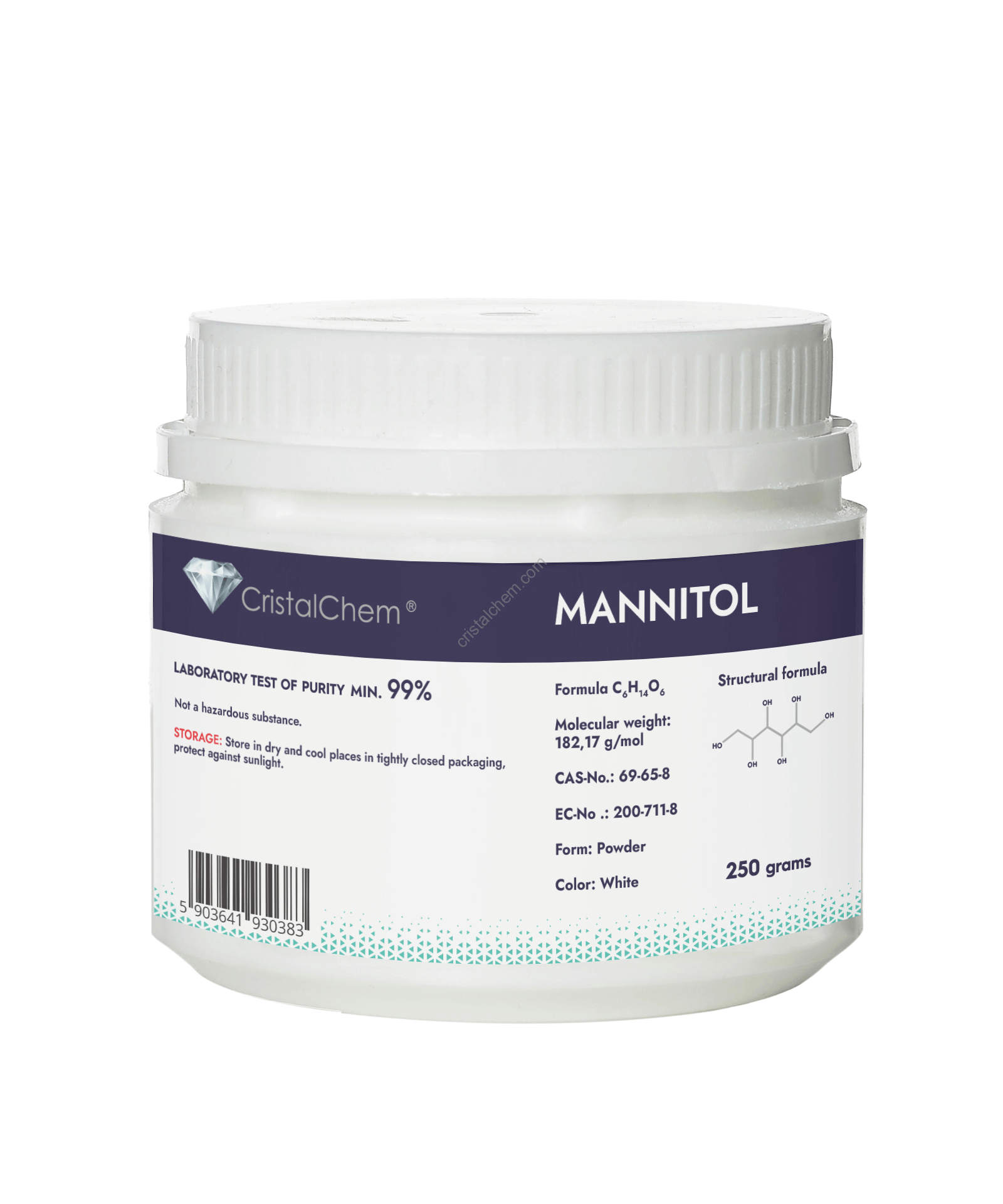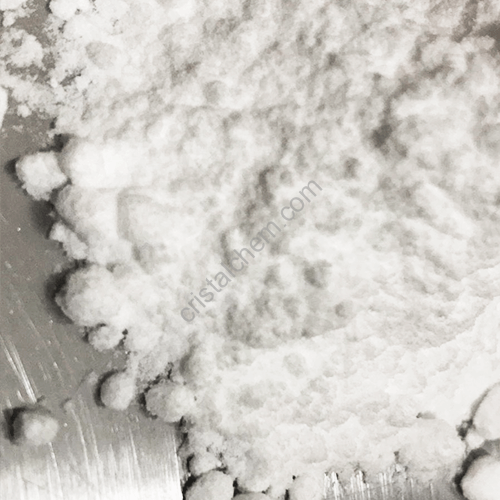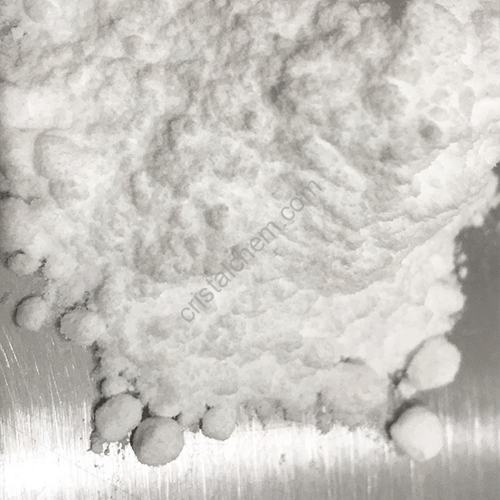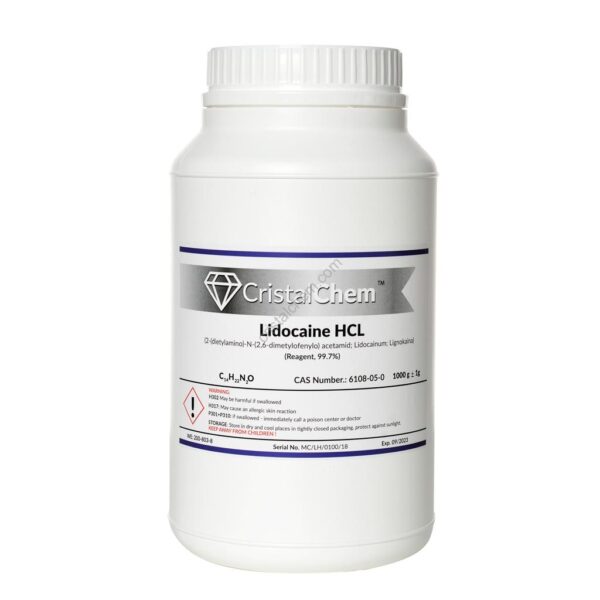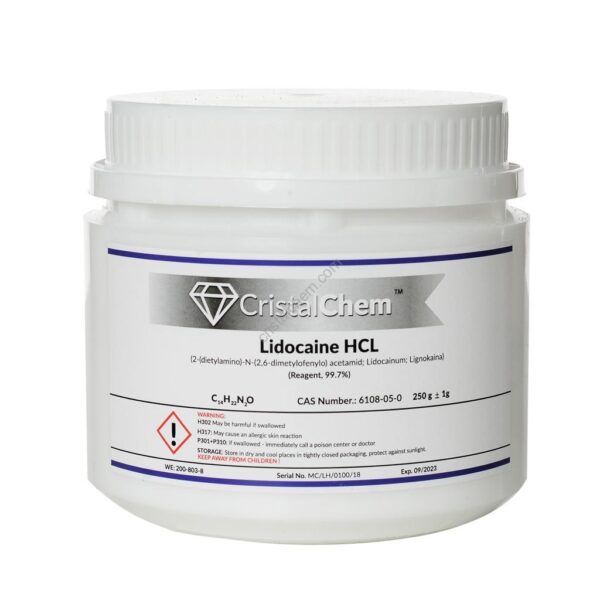Description
Physical and Chemical Properties:
Form: Solid
Color: White
Odor: Odorless
Formula: C6H14O6 Molar Mass: 182.17 g/mol
Melting/Freezing Point: 165-169 °C
Solubility in Water: 182 g/L at 20 °C
The information provided above is for informational, scientific, and research purposes. The product is intended for professional use.
The information contained below is informative, scientific and research. The product is intended for professional use.
Mannitol, what is it?
Mannitol (C6H14O6) is a highly pure, white, crystalline powder commonly used as a chemical reagent in laboratories, the pharmaceutical industry, and scientific research. The properties of mannitol, such as hygroscopicity, thermal stability, and ability to form eutectics, make it invaluable in many advanced applications.
How is Mannitol produced?
Mannitol can be obtained through several methods, but it is most commonly produced from sucrose or glucose. One of the main industrial processes used to produce mannitol is the hydrolysis of sucrose. An alternative method of mannitol production is the reduction of glucose. Mannitol can also be synthesized from other chemical compounds. These processes can be conducted on both small and large scales, depending on the needs and production capabilities. However, it is important to note that industrial methods of mannitol production require proper conditions, such as temperature control, pressure, and catalyst concentration.
Where is Mannitol used?
As a professional chemical reagent, mannitol is utilized in various fields, including:
• Analytical chemistry: as a reference substance, desiccant, and for determining heat capacity. • Mannitol is used as a filler, binding agent, and stabilizer.
• Scientific research: in studies related to osmoregulation, oxidative stress, and cell membrane function.
• Cosmetics industry: Mannitol is employed as an ingredient in cosmetics, such as creams, shampoos, and soaps.
Application of Mannitol in cosmetics:
In cosmetics, it is used as an ingredient in moisturizing creams to enhance their water-retaining capacity and help maintain proper skin hydration. Additionally, mannitol is used in hair care preparations aimed at moisturizing the hair and increasing its volume.
Mannitol and its purpose:
It is important to note that mannitol, as a chemical reagent, is intended for professional use only, and its use requires adequate knowledge and experience. Store mannitol in tightly sealed containers, in a dry and cool place, away from direct sunlight. Adhere to all precautionary measures and safety regulations when working with this reagent.
The offered mannitol is a chemical reagent intended for professional use.

